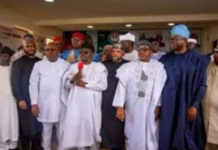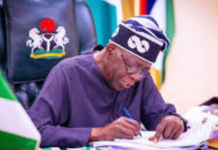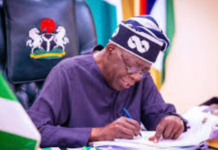In recent years, social media has become a powerful platform for political activism in Nigeria, amplifying citizens’ voices in unprecedented ways. Once a tool for connecting with friends and sharing personal stories, social media has transformed into a virtual battleground where political ideas are debated, and calls for accountability resound. From campaigns like #EndSARS to the more recent #RevolutionNow movement, social media has enabled Nigerians, especially the youth, to unite and demand change.
1. Social Media as a Tool for Awareness and Mobilization
Nigeria’s population skews young, with more than 60% under the age of 25, and social media usage mirrors this demographic, with platforms like Twitter, Facebook, and Instagram experiencing rapid growth. This tech-savvy generation is leveraging the internet to share information, create awareness, and mobilize around social and political issues. Campaigns are launched, messages go viral, and hashtags unify voices across the country and beyond.
The ease of access to information and the speed at which news can spread on social media allow for instant mobilization. This means that when pressing issues arise, such as corruption, police brutality, or election irregularities, activists can quickly gather support, amplify marginalized voices, and coordinate protests. A key example is the #EndSARS movement in 2020, which started as a Twitter hashtag but soon gained international attention. Nigerian youth utilized Twitter to expose incidents of police brutality, share updates, and organize protests that spanned several cities. Social media enabled a form of digital resistance, allowing citizens to hold the government accountable on an unprecedented scale.
2. Hashtag Movements and Digital Protest
Hashtags have become the new rallying cries for activism in Nigeria. They serve as a digital archive for important issues, where anyone can trace the history, understand the dynamics, and engage with the movement. Examples of hashtag movements in Nigeria include BringBackOurGirls, EndSARS, OccupyNigeria, and NotTooYoungToRun. Each of these hashtags represents a call for action and an expression of frustration with the status quo.
These movements also highlight how social media can bridge the gap between local and global audiences. For instance, BringBackOurGirls, which called for the return of over 200 schoolgirls kidnapped by Boko Haram in 2014, garnered international attention and mobilized influential figures, including former First Lady Michelle Obama. Similarly, EndSARS not only brought Nigerians together but also caught the attention of the global community, who supported the movement and called for reforms within Nigeria’s law enforcement agencies.
3. The Role of Social Media Influencers and Celebrities
Social media influencers and celebrities in Nigeria have increasingly taken on the role of political voices. With large followings on platforms like Twitter, Instagram, and Facebook, they have the power to sway public opinion and amplify social causes. For example, celebrities such as Falz, Davido, and Burna Boy played critical roles in EndSARS by voicing their support and urging their followers to participate. These influential figures not only bring credibility to a cause but also use their reach to draw international attention, thereby increasing the pressure on Nigerian leaders to address pressing issues.
4. The Government’s Response to Digital Activism
As social media activism has grown in Nigeria, so too has the government’s response. In 2021, the Nigerian government banned Twitter for several months after the platform removed a tweet from the president for violating its policy. The ban was widely seen as an attempt to curb online dissent and sparked outrage. Nigerians found workarounds, using virtual private networks (VPNs) to continue accessing the platform, demonstrating resilience and the importance of social media in their fight for free speech.
The government has also proposed several bills aimed at regulating social media usage, which activists argue could stifle freedom of expression. These measures reveal the government’s concern about the power of social media activism, as they seek to control the narrative and reduce the ability of citizens to mobilize online.
5. Challenges and Opportunities
Despite the growth of social media activism in Nigeria, it faces challenges, including misinformation, online harassment, and digital surveillance. False information can quickly spread on social media, sometimes misleading the public and creating confusion around issues. Furthermore, activists are often targets of online harassment, and some face real-life threats due to their digital activism. Digital surveillance is another concern, as the government increasingly monitors online activities, potentially deterring people from openly expressing their views.
Yet, the opportunities outweigh the challenges. Social media activism provides a sense of empowerment for Nigerian citizens, particularly those who feel marginalized in traditional political spaces. It has given young people a voice, helping to break down the barriers between the people and those in power. Through these platforms, Nigerians can now participate more actively in their country’s democracy, calling for transparency, accountability, and social justice.
6. The Future of Social Media Activism in Nigeria
Looking forward, social media is set to play an even more integral role in Nigerian politics. With the 2027 general elections on the horizon, digital platforms will likely be at the center of political campaigns, voter education, and activism. The ability of Nigerians to shape political narratives online could lead to a more engaged and politically conscious citizenry.
As Nigerians continue to harness the power of social media for political activism, it’s clear that the internet is becoming a crucial tool in the fight for change. Despite government pushbacks, the resilience of Nigerian activists suggests that social media will remain a vital space for expressing dissent, organizing protests, and advocating for a better future. In a country with a young and digitally connected population, social media activism is here to stay, promising to reshape Nigerian politics and empower the next generation.
The rise of political activism on social media in Nigeria is more than a trend; it’s a transformation of civic engagement. The power of this new form of activism lies in its inclusivity, immediacy, and reach, bridging the gap between the powerful and the voiceless. Social media has democratized activism in Nigeria, and it continues to shape the nation’s future.




















